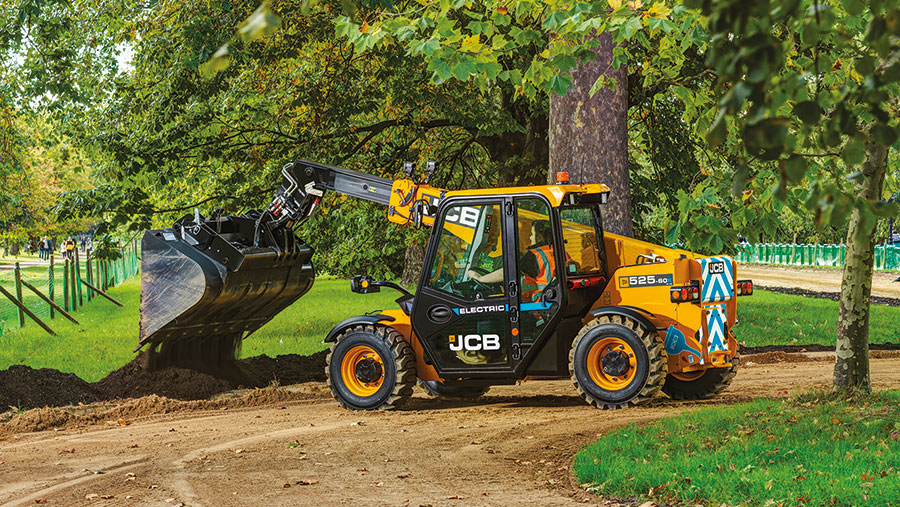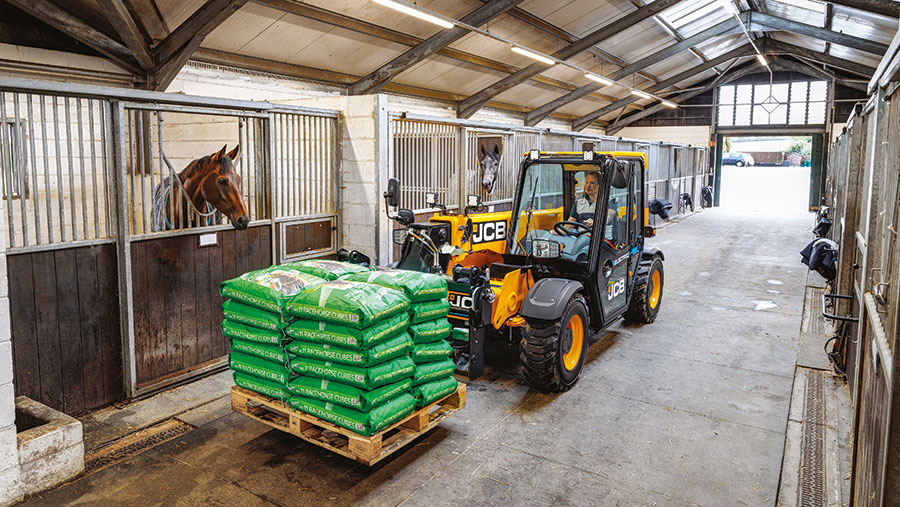JCB breaks new ground with its first electric telehandler
 © JCB
© JCB JCB has added to its electric machinery portfolio with a first zero-emissions telescopic Loadall.
The unveiling of the new telehandler was timed to coincide with the government’s announcement in mid-November of a 10-point green energy plan, which includes a big emphasis on electric power for industry.
The new 525-60E is claimed to have the same power as its diesel equivalent, can match its 2.5t maximum lift capacity and is rated to hoist 2t to the full 6m reach limit. Its launch is part of the firm’s “Road to Zero” programme, which has already seen oil-burning Teletrucks, mini diggers and, most recently, a 1t dumper switched to electric power. The new telehandler is a clear sign that loaders are next on the list.
See also: Ultimate guide to buying a telehandler 2020
The conversion sees the 75hp Kohler diesel engine replaced with a 96V lithium-ion battery pack, which is claimed to be good for 5,000 charges – about 10 years.
The primary means of charging is via external power sources such as JCB’s 18kW Universal Charger that can fill the cells in less than two hours, or get them from 25% to 80% in an hour. There’s also an on-board regenerative system that provides very light battery top-ups by harvesting energy when the Loadall brakes.

© JCB
Twin motors
The standard hydrostatic transmission has been ditched in favour of a 17kW Jungheinrich drive motor. This is connected to a drop box and propshaft that transmits power to both axles. However, top speed is just 15kph.
As far as hydraulics go, a 22kW motor, also made by German firm Jungheinrich, runs an internal gear pump that provides the same 80-litre/min output as the diesel machine. Cycle times are apparently pretty similar, but oil flow is determined entirely by joystick position rather than the throttle. Like the rest of the range, regenerative hydraulics help conserve energy by using gravity to lower the boom.
The company has been fairly vague on the expected run time of the electric Loadall, which will be a key factor for livestock farms clocking up several thousand hours a year. Rather than committing to specific figures, it simply says that the batteries will last for a somewhat ambiguous “full shift”, which JCB considers to be a single feeding session on a dairy farm.
One of the obvious perks will be the reduced cab noise – down to just 66.7dBa – though the company does offer an optional white noise reversing alarm to warn nearby workers.
Electrification of tractors and wheeled loaders is also on JCB’s to-do list but, due to these machines’ long working hours in dusty environments, converting them has proved challenging. In reality, alternative fuels are a more likely route to lowering emissions in the short term, rather than outright electrification.
JCB says it has had plenty of interest from farms with renewable energy sources, such as solar panels or wind turbines, as they look to make the most of their electricity supply.
The 525-60E is available to order now and is expected to cost 70% more than the diesel version.

